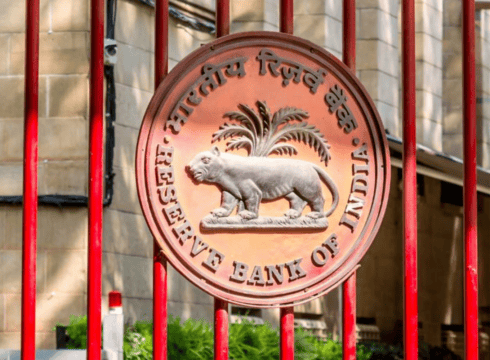The Reserve Bank of India Innovation Hub, an RBI subsidiary, has developed MuleHunter AI, an artificial intelligence and machine learning model to help banks and financial institutions detect mule accounts used by fraudsters
This new system will focus on alerting users and protecting digital transactions
Under this, banks will access a central RBI database containing information on different types of fraud and known perpetrators
Inc42 Daily Brief
Stay Ahead With Daily News & Analysis on India’s Tech & Startup Economy
With the growing reliance on artificial intelligence (AI), the Reserve Bank of India (RBI) is reportedly looking to develop an AI-enabled system to alert individuals about real-time financial fraud.
As per a Mint report, the Reserve Bank of India Innovation Hub (RBIH), an RBI subsidiary, has developed MuleHunter AI, an artificial intelligence and machine learning (AI/ML) model to help banks and financial institutions detect mule accounts used by fraudsters. This new system, however, will focus on alerting users and protecting digital transactions.
Under this, banks will access a central RBI database containing information on different types of fraud and known perpetrators. The AI-powered system will then flag suspicious transactions before they are completed.
“The system will leverage Al to collect and analyse data on potential frauds, identify high-risk platforms and notify users during transactions to reduce cyber fraud risks,” a source told Mint.
“While cyber fraud remains under control, the RBI sees this proactive approach as crucial in addressing emerging challenges in the digital financial space,” the person added.
According to another source, the system is designed to make it more difficult to cash out fraudulent funds while enhancing banks’ and payment gateways’ ability to detect potential fraud. Despite fraud rates currently being low—approximately one in every 114,000 transactions, there has been an increase in both the volume and average size of cyber frauds. These efforts are part of broader plans to raise public awareness and help prevent victimisation, as per Mint.
In addition to setting up multiple groups to tackle cyber fraud, the RBI established the cyber security and IT examination (CSITE) cell in 2015 under its department of banking supervision and created a fraud monitoring cell to publish a directory of officials responsible for fraud reporting in banks and financial institutions. RBI has also updated guidelines for banks, incorporating insights from the Indian cyber crime coordination centre.
Earlier this month, RBI Governor Shaktikanta Das, during the 90th High-Level Conference organised by the Reserve Bank of India in New Delhi, cautioned that a heavy reliance on AI could lead to concentration risks in the financial sector.
At the time he reportedly said that the growing use of AI could enable a few technology providers to dominate the market, potentially creating systemic risks. “Heavy reliance on AI can lead to concentration risks, particularly when a limited number of tech providers control the market,” said Das.
The Governor also highlighted that AI brings new vulnerabilities, such as a higher risk of cyberattacks and data breaches. Additionally, the opacity of AI systems complicates auditing and interpreting the algorithms behind financial decisions.
{{#name}}{{name}}{{/name}}{{^name}}-{{/name}}
{{#description}}{{description}}...{{/description}}{{^description}}-{{/description}}
Note: We at Inc42 take our ethics very seriously. More information about it can be found here.


